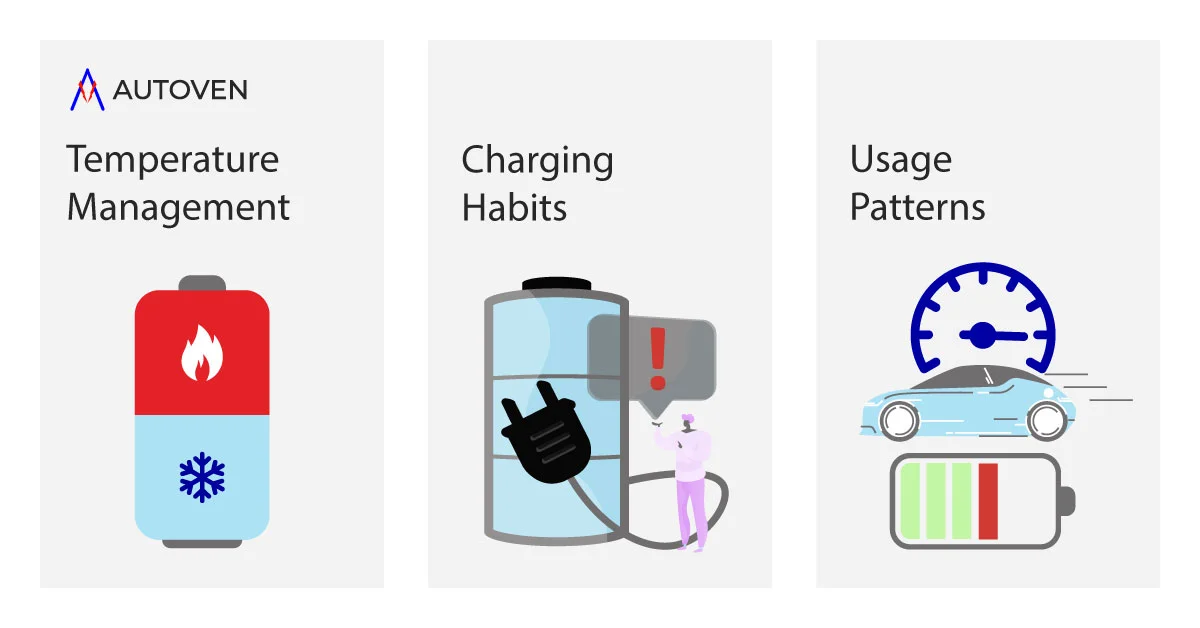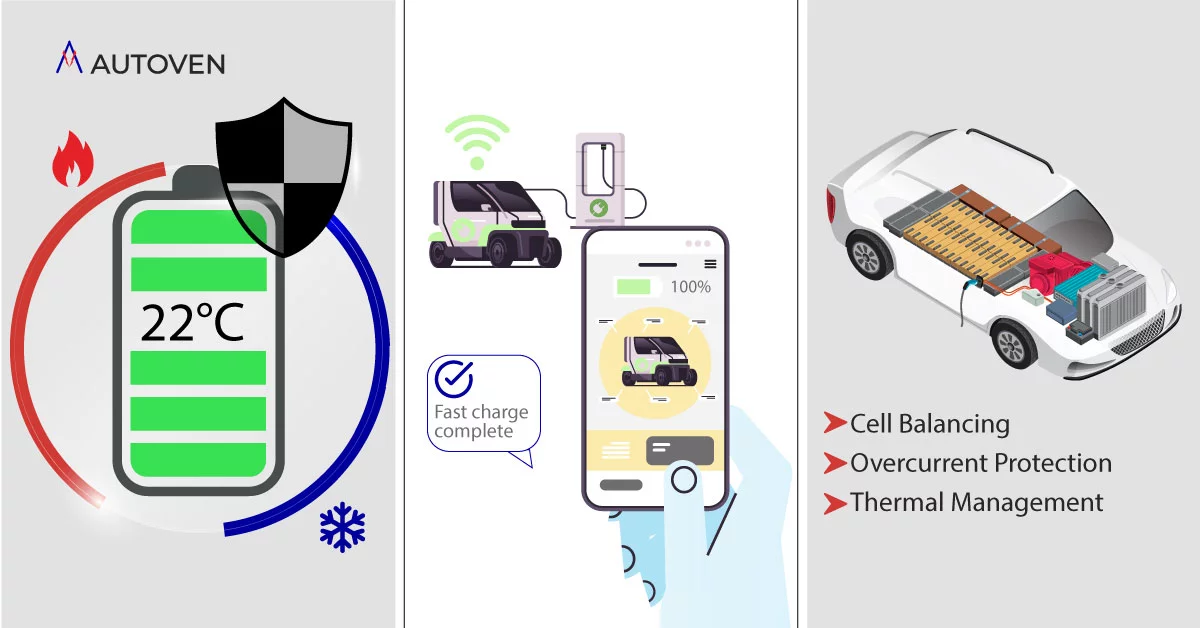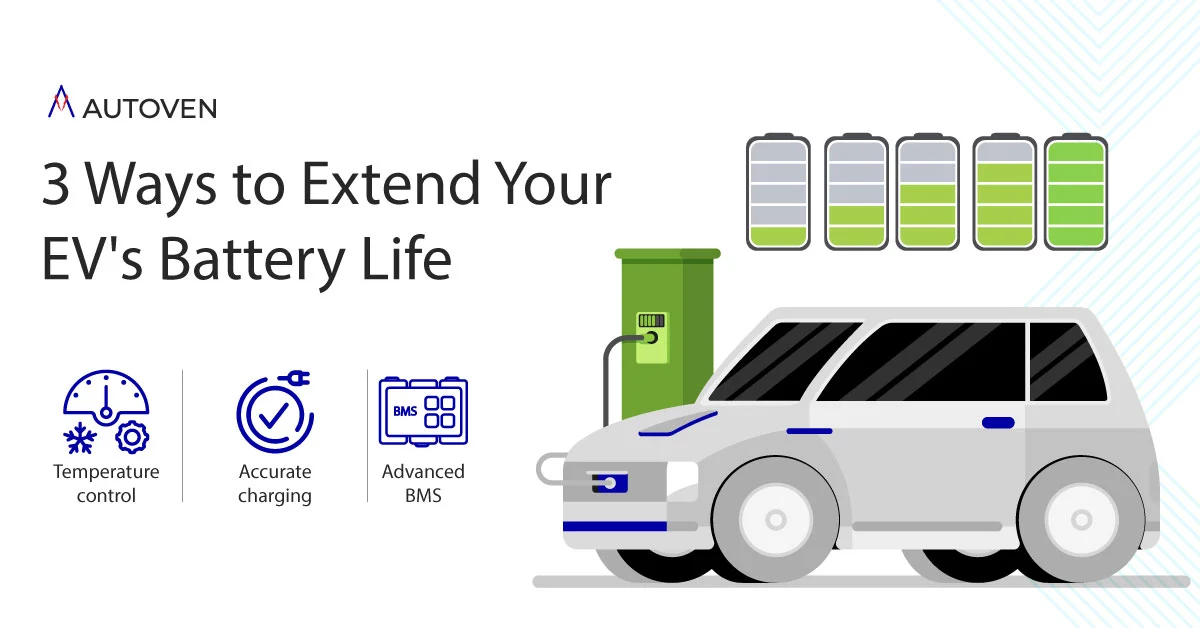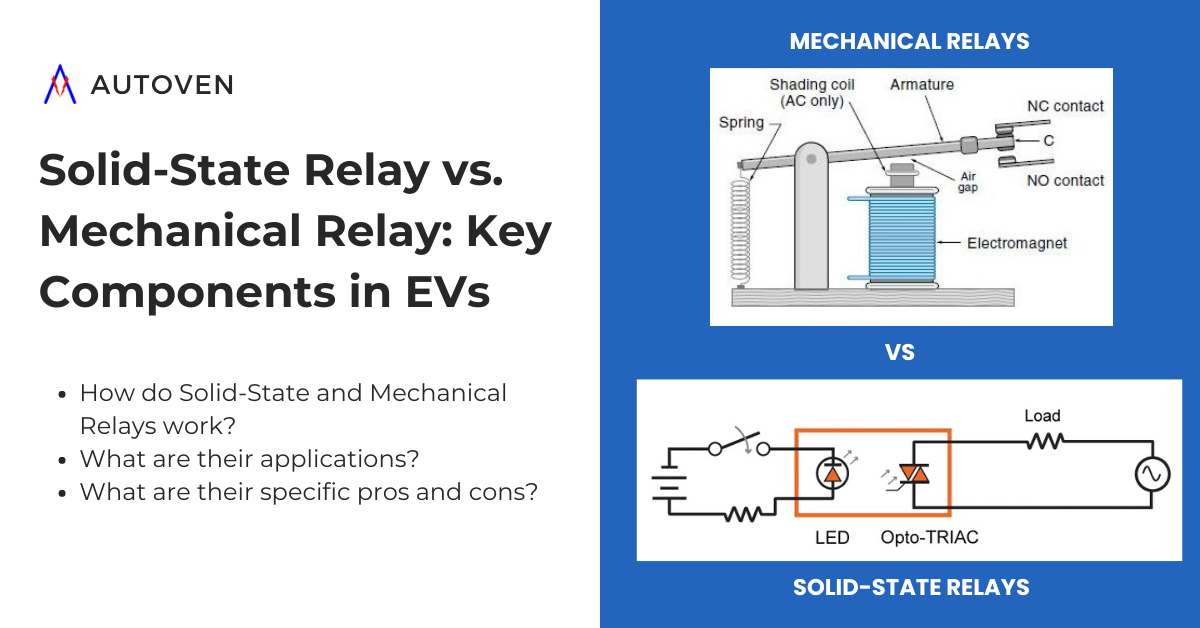Introduction
Electric vehicles (EVs) are revolutionizing the automotive industry, and advancements in battery technology are crucial to their success. The EV battery is the heart of the vehicle, significantly impacting range, performance, and overall cost of ownership. Since batteries account for nearly 50% of an EV’s total cost, maximizing their lifespan is critical for both cost efficiency and sustainability. EV battery life plays a vital role in this equation, as it determines how long the vehicle can perform efficiently before requiring a costly replacement.
A longer-lasting battery means fewer replacements, lower maintenance costs, and improved resale value. Additionally, extending EV battery life supports environmental sustainability by reducing the demand for raw materials and minimizing battery waste. Understanding how to optimize your EV battery’s longevity can lead to better performance and a more sustainable driving experience.This guide explores three proven strategies for enhancing EV battery life, ensuring optimal performance and longevity. Whether you own an EV, are considering purchasing one, or are an OEM/battery manufacturer building battery packs, these best practices will help you get the most out of your battery.
Why EV Battery Life Matters
The lifespan of an EV battery directly impacts several crucial aspects:
- Driving Range – A healthy battery ensures optimal mileage per charge.
- Total Cost of Ownership – Fewer replacements mean significant long-term savings.
- Resale Value – A well-maintained battery increases vehicle value.
- Environmental Sustainability – Longer-lasting batteries reduce waste and resource consumption.
Unlike traditional gasoline engines, where fuel determines range, an EV’s battery health dictates how far it can travel before recharging. Battery degradation over time can shorten this range, leading to frequent charging and reduced convenience. Taking the right steps can extend battery life and maintain peak efficiency.
Key Factors Affecting EV Battery Life

Several variables impact EV battery longevity, including:
- Temperature Management – Extreme heat or cold accelerates battery degradation.
- Charging Habits – Overcharging, deep discharging, and rapid charging affect battery health.
- Driving Patterns – Aggressive acceleration and high-speed driving drain battery power faster.
- Battery Chemistry – Depending on usage patterns, different battery types have varying lifespans and sensitivities.
- Software and Battery Management Systems (BMS) – Advanced monitoring systems help regulate charging cycles and prevent overuse.
By adopting strategic battery management practices, EV owners can significantly extend battery lifespan and optimize performance.
3 Effective Ways to Extend Your EV Battery Life
1. Optimize Thermal Management Systems
EV batteries operate best within an optimal temperature range. Excessive heat or cold can degrade battery cells, reducing efficiency and longevity.
Best Practices for Thermal Management:
- Use Battery Cooling Systems – Active liquid cooling and heat sinks regulate temperature.
- Avoid Extreme Weather Exposure – Park in shaded areas during hot weather and use pre-conditioning features in cold climates.
- Monitor Battery Temperature – Ensure the battery remains within the manufacturer-recommended range.
- Precondition the Battery – Preheat or precool the battery before charging to minimize stress if your EV allows it.
Modern EVs have thermal management systems that regulate the battery’s temperature. However, drivers can optimize battery health by avoiding prolonged exposure to extreme weather conditions.
2. Adopt Smart Charging Practices
How you charge your EV significantly influences battery health. Irregular or excessive charging can lead to capacity loss over time.
Smart Charging Techniques:
- Avoid Frequent Fast Charging – While convenient, rapid charging generates heat and accelerates wear.
- Charge Between 20%-80% – Avoid full charges and deep discharges to maintain battery longevity.
- Utilize Scheduled Charging – Some EVs allow scheduled charging to optimize battery health.
- Use Regenerative Braking – This feature helps recover energy while driving, reducing overall battery strain.
- Avoid Charging in Extremely Hot or Cold Conditions – Charging in extreme temperatures can stress battery cells.
Smart charging systems also incorporate predictive analytics to adjust charging rates based on battery condition and usage patterns. A home charging station with customizable settings can help you manage charging cycles effectively.
3. Use an Advanced Battery Management System (BMS)
A Battery Management System (BMS) is essential for optimizing charge cycles, balancing cells, and monitoring overall battery health.
Benefits of a Robust BMS:
- Prevents Overcharging & Deep Discharging – Protects battery cells from damage.
- Maintains Optimal Charge Cycles – Regulates current flow for efficiency.
- Improves Battery Longevity – Ensures balanced energy distribution and temperature control.
- Monitors Battery Performance – Provides real-time diagnostics to prevent unexpected failures.

AV BMS: The Ultimate Battery Optimization Solution
AV BMS is a state-of-the-art Battery Management System designed for EVs, offering a modular design that supports voltages from 12V to 3000V. Key features include:
- Real-time Monitoring – Tracks cell voltages, temperatures, and overall battery health.
- State-of-Charge (SoC) & State-of-Health (SoH) Analysis – Provides precise battery condition insights.
- Advanced Safety Compliance – Built to ASIL-D standards for maximum safety and reliability.
- AI-Based Predictive Maintenance – Uses machine learning to detect potential issues before they impact battery performance.
By integrating an advanced BMS like AV BMS, EV owners can significantly improve battery efficiency, reduce wear, and maximize lifespan.
The Future of EV Battery Technology
As the EV market expands, advancements in battery cooling, intelligent charging, and BMS technologies drive industry growth. Manufacturers focusing on longer-lasting, efficient battery solutions will shape the future of electric mobility.In the coming years, expect solid-state batteries, enhanced AI-driven battery monitoring, and ultra-fast charging solutions that extend battery life and improve performance.
Conclusion
Extending EV battery life is critical for cost-effectiveness, performance, and sustainability. EV owners can enhance battery efficiency and longevity by implementing optimized thermal management, intelligent charging, and an advanced Battery Management System.Following these best practices can maximize the lifespan of your EV battery, improve vehicle performance, and contribute to a greener future.



